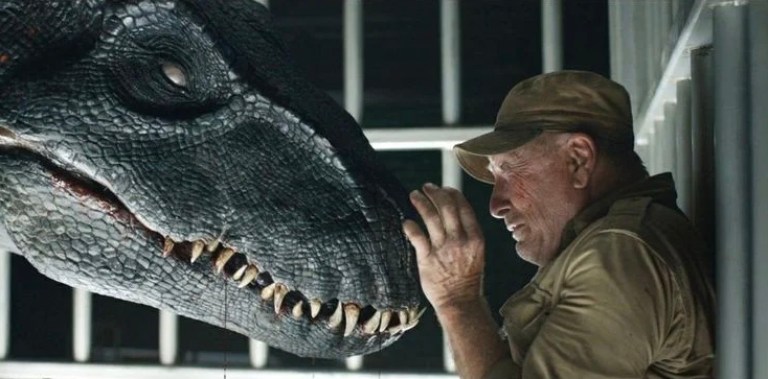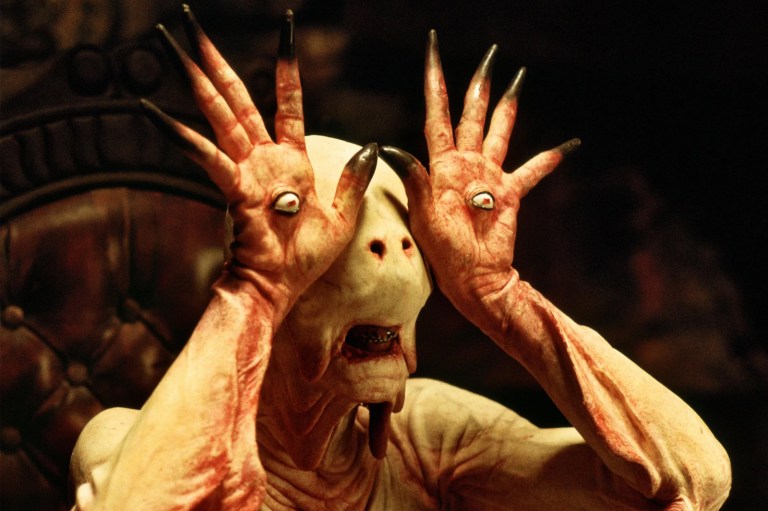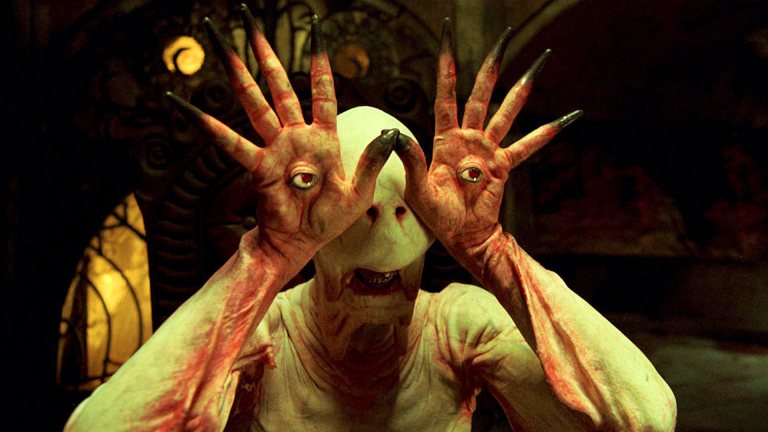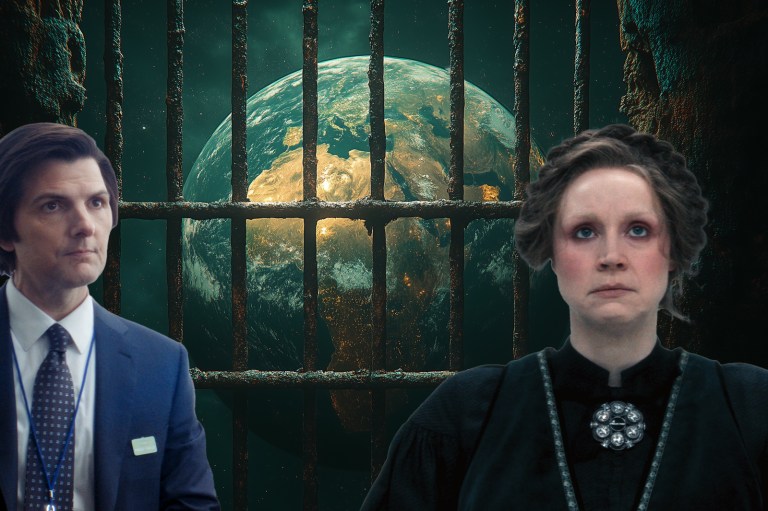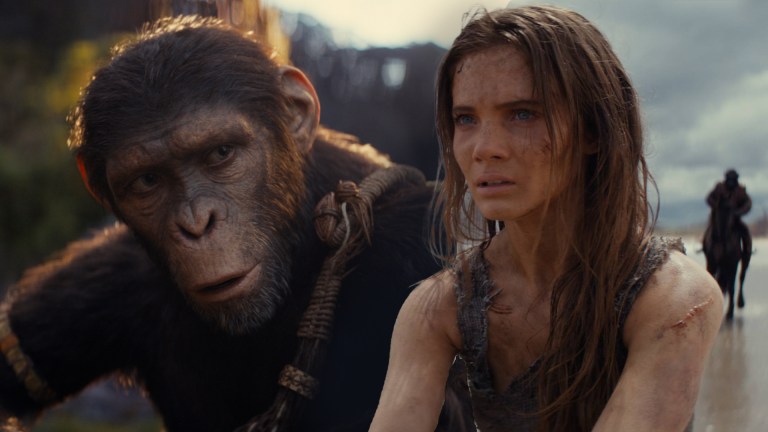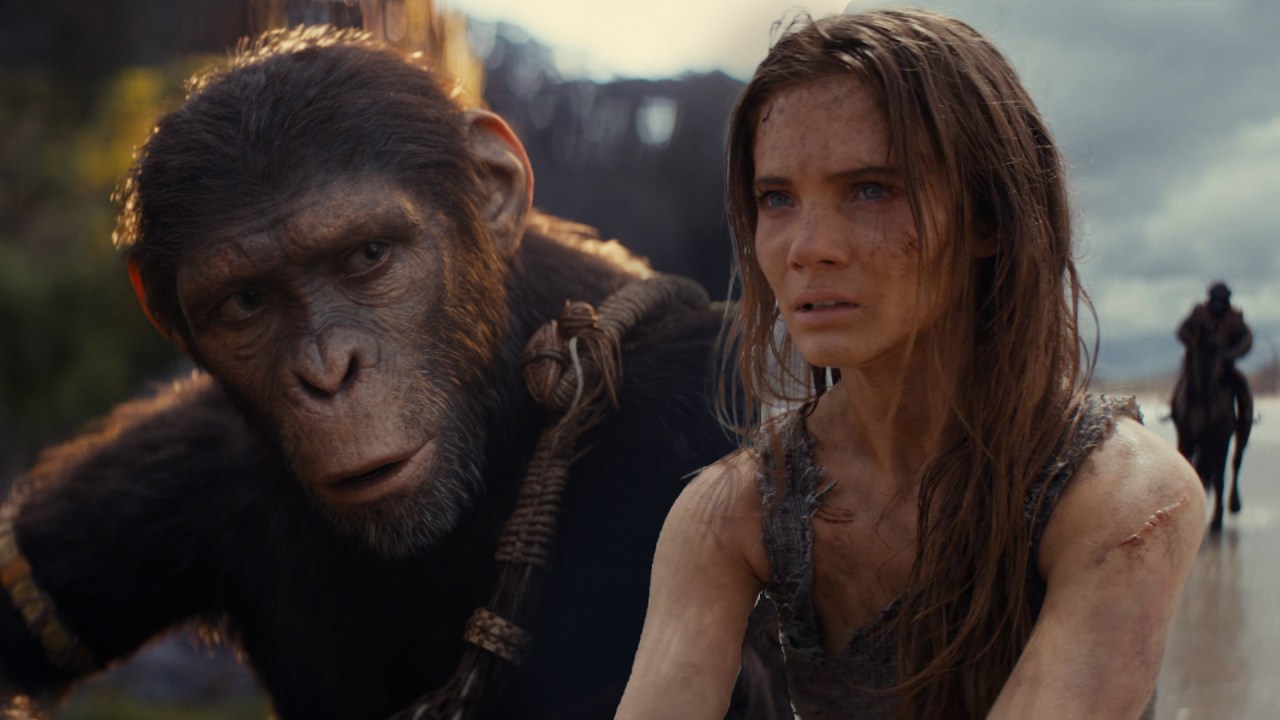
‘Kingdom Of The Planet Of The Apes’ Proves Society Is In A Hell Loop
Wes Ball’s Kingdom of the Planet of Apes questions if society will ever be able to find peace and harmony, or if it’s trapped in an endless cycle of atrocity.
War for the Planet of the Apes tore hearts out and put them in a blender as Caesar died, but the film also left a trail of optimism as the apes secured a haven to call home. In Wes Ball’s Kingdom of the Planet of the Apes–which takes place 300 years after the death of Caesar–the apes find their simian society in peril once again. This time, though, it’s all self-created. Much like all the films in the series serve as metaphors about humanity (or lack thereof), this latest installment also carries an important message; however, it’s a gut-punching reminder of how humankind appears to be doomed to repeat the same mistakes over and over again.
Starting a new cycle of oppression.
In Kingdom of the Planet of the Apes, the greatest threat comes from within–essentially, Proximus Caesar (Kevin Durand) and his followers. The megalomaniac monarch holds grand ambitions for the future of ape–with him on the throne, of course–and enslaves other clans into doing his bidding for him and under the guise of following Caesar’s teachings. Proximus claims to prescribe to the same ethos and belief system as his predecessor, though he warped Caesar’s message to serve his wants and desires. Unlike Caesar who didn’t believe in ape-on-ape violence–unless absolutely necessary as in the case of the dangerous Koba in Dawn of the Planet of the Apes–Proximus isn’t afraid to kill his brethren to simply get ahead.
It’s the oldest political trick in the book, where someone anoints themselves as the leader of a movement and claims to act in the name of the cause. However, when others look past the veneer and interrogate the integrity of the message, they find out this individual only serves their own motives. Proximus works as the archetype for fascist regimes who oppress their own people to advance their own needs. Despite claiming a better tomorrow, there’s a clear distinction, becoming a master and slave dynamic where the one who holds power lives in the lap of luxury while their followers sleep with only fear in their stomachs. Even though Proximus is defeated at the end of the film and plummets to his death after a skirmish with the eagles, the question remains: Will he be the last one to try such tactics? Unlikely.
The constant strive for dominance.

Throughout the recent Planet of the Apes movies, it’s become clear that humans have continued to devolve, establishing apes as the dominant species on Earth. In Kingdom of the Planet of the Apes, Mae (Freya Allen) demonstrates there’s a plan to get humans back on top. While Noa (Owen Teague) understands why Mae and her species would want to achieve this goal, he also questions what would happen to apes if humans were to become successful.
When he, Soona (Lydia Peckham), and Anaya (Travis Jeffery) find a storybook from the past, they see that apes were caged in zoos. For Noa, he ponders if this is the world that humans want to have back again – one where apes have their freedom taken away and are kept subservient. Ultimately, his concerns prove to be valid as Mae sets off the explosives and leaves Noa and the others to escape the bunker on their own.
Mae’s actions demonstrate a concerning us-versus-them mentality that’s caused great division throughout human history. Instead of embracing differences and finding common ground and mutual respect, it becomes a scramble for superiority and the need to be right. The desire to be dominant overshadows all common sense and the blatant lesson that this cycle will only repeat itself. That is, unless it’s stopped in its tracks. And the only way this is possible is if more brave people are prepared to say enough is enough and insist on love conquering hate and fear. It’s no good to only want to break the cycle; they need to do it.
Is there the ability to coexist?
Kingdom of the Planet of the Apes provides a lot of food for thought by the time the credits roll. With the dissension among apes, one has to wonder if the different clans will be able to live in peace and harmony–or if the next Proximus is lurking around the corner.
At the same time, there’s a big question mark about humans and if their one step forward in the evolution game will force the apes backward. There are numerous power plays taking place in this world between apes and apes, humans and apes, and don’t bet against humans and humans at some point, too. But what’s the endgame here? Is one species doomed to extinction or can everyone coexist in a fair and balanced ecosystem?
While Kingdom of the Planet of the Apes doesn’t provide a definitive answer to the question of possible coexistence, it leaves a glimmer of hope in the end. Noa doesn’t react in anger when he sees Mae once again, even though she holds a gun behind her back. Instead, he’s reminded of Caesar’s quest for empathy and kindness among ape and human, and he takes the opportunity to demonstrate this to Mae. He opens his heart and shows compassion in what’s the first step to escaping from society’s hellish loop of pain and suffering.
